киплинг.pptx
- Количество слайдов: 10
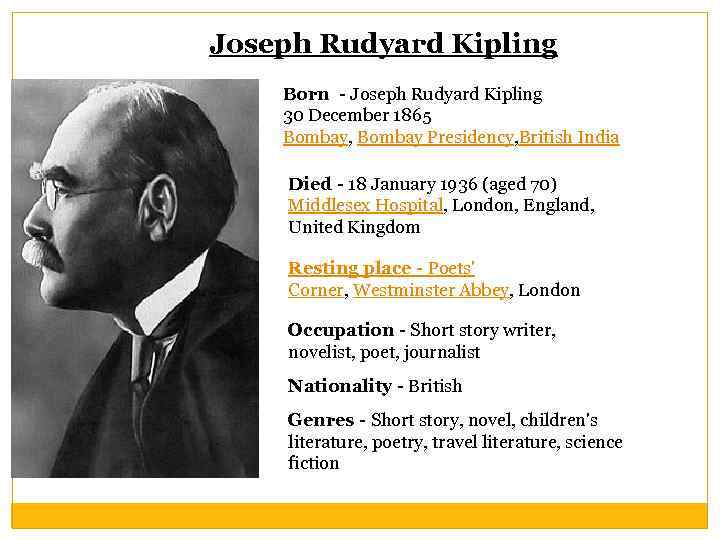
Joseph Rudyard Kipling Born - Joseph Rudyard Kipling 30 December 1865 Bombay, Bombay Presidency, British India Died - 18 January 1936 (aged 70) Middlesex Hospital, London, England, United Kingdom Resting place - Poets' Corner, Westminster Abbey, London Occupation - Short story writer, novelist, poet, journalist Nationality - British Genres - Short story, novel, children's literature, poetry, travel literature, science fiction
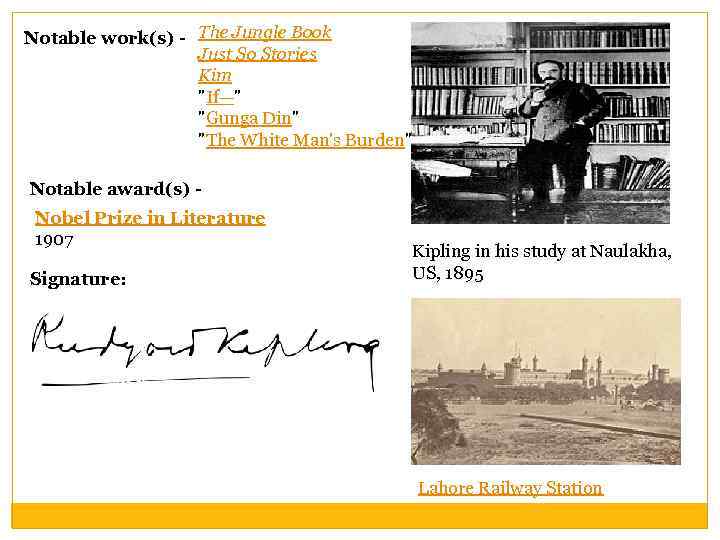
Notable work(s) - The Jungle Book Just So Stories Kim "If—" "Gunga Din" "The White Man's Burden" Notable award(s) Nobel Prize in Literature 1907 Signature: Kipling in his study at Naulakha, US, 1895 Lahore Railway Station
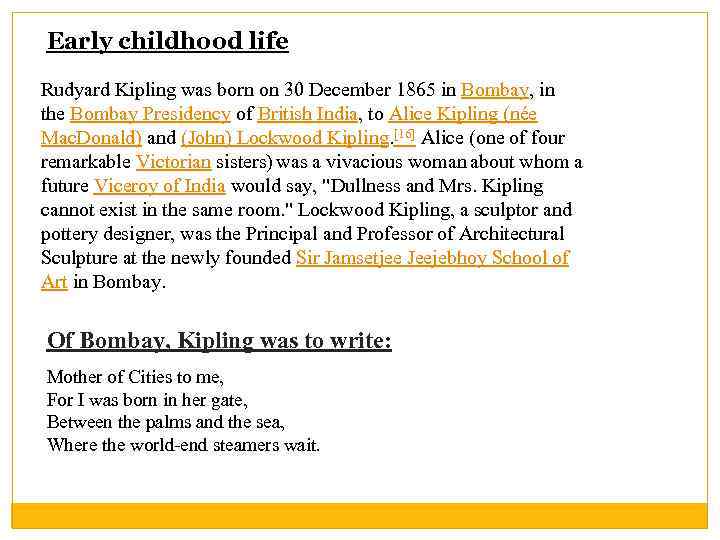
Early childhood life Rudyard Kipling was born on 30 December 1865 in Bombay, in the Bombay Presidency of British India, to Alice Kipling (née Mac. Donald) and (John) Lockwood Kipling. [16] Alice (one of four remarkable Victorian sisters) was a vivacious woman about whom a future Viceroy of India would say, "Dullness and Mrs. Kipling cannot exist in the same room. " Lockwood Kipling, a sculptor and pottery designer, was the Principal and Professor of Architectural Sculpture at the newly founded Sir Jamsetjee Jeejebhoy School of Art in Bombay. Of Bombay, Kipling was to write: Mother of Cities to me, For I was born in her gate, Between the palms and the sea, Where the world-end steamers wait.
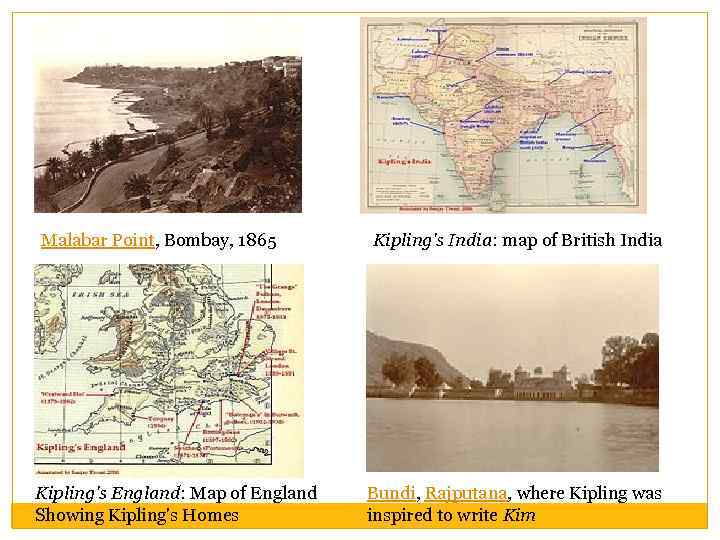
Malabar Point, Bombay, 1865 Kipling's England: Map of England Showing Kipling's Homes Kipling's India: map of British India Bundi, Rajputana, where Kipling was inspired to write Kim
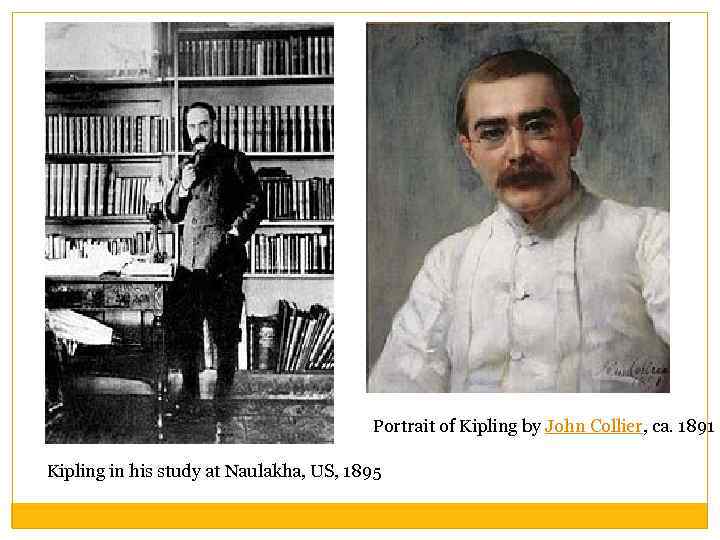
Portrait of Kipling by John Collier, ca. 1891 Kipling in his study at Naulakha, US, 1895
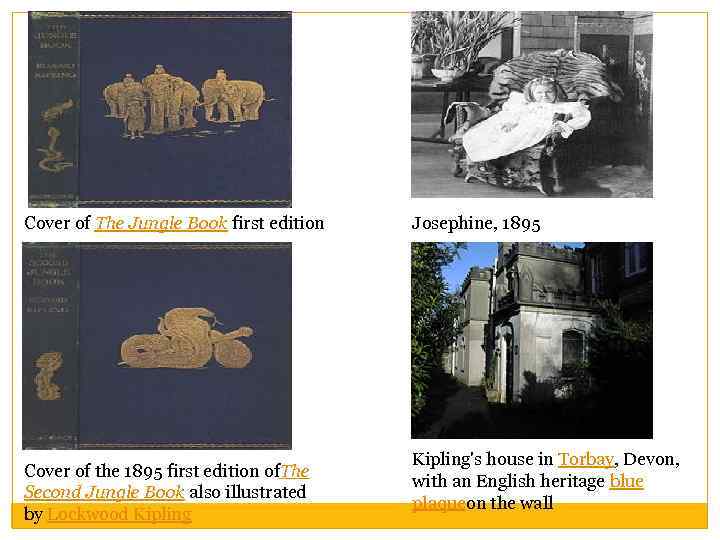
Cover of The Jungle Book first edition Cover of the 1895 first edition of. The Second Jungle Book also illustrated by Lockwood Kipling Josephine, 1895 Kipling's house in Torbay, Devon, with an English heritage blue plaqueon the wall
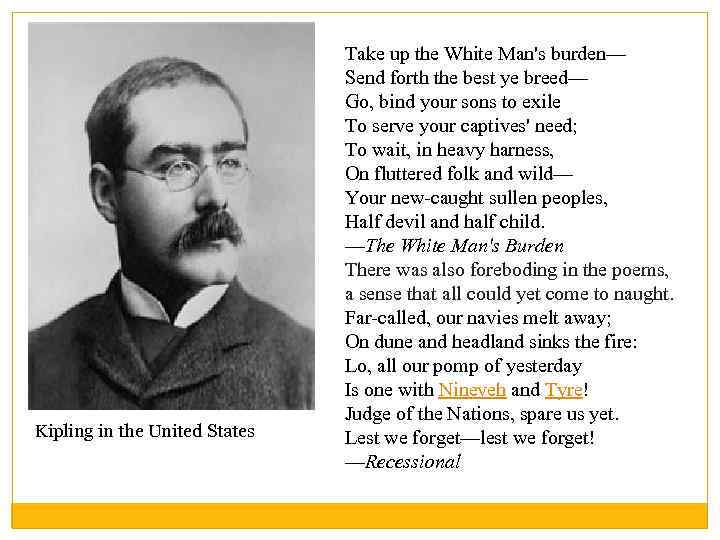
Kipling in the United States Take up the White Man's burden— Send forth the best ye breed— Go, bind your sons to exile To serve your captives' need; To wait, in heavy harness, On fluttered folk and wild— Your new-caught sullen peoples, Half devil and half child. —The White Man's Burden There was also foreboding in the poems, a sense that all could yet come to naught. Far-called, our navies melt away; On dune and headland sinks the fire: Lo, all our pomp of yesterday Is one with Nineveh and Tyre! Judge of the Nations, spare us yet. Lest we forget—lest we forget! —Recessional
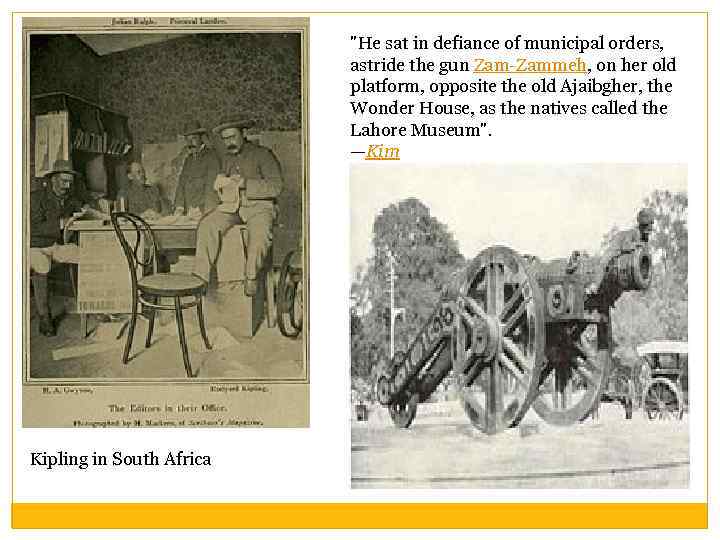
"He sat in defiance of municipal orders, astride the gun Zam-Zammeh, on her old platform, opposite the old Ajaibgher, the Wonder House, as the natives called the Lahore Museum". —Kim Kipling in South Africa
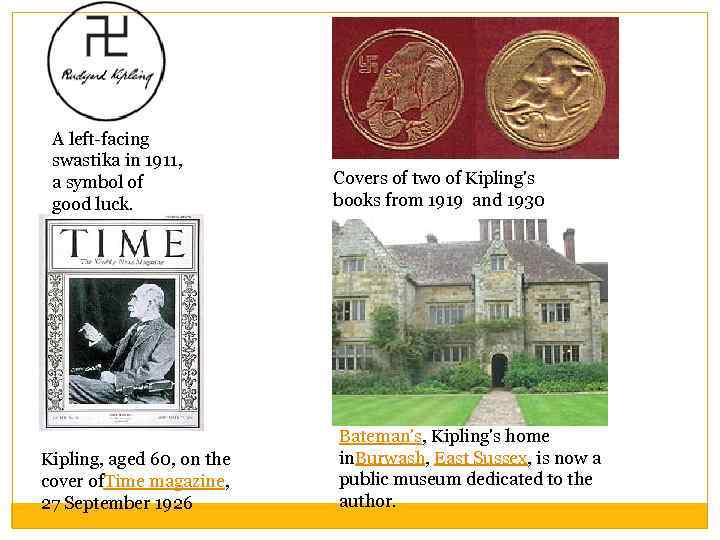
A left-facing swastika in 1911, a symbol of good luck. Kipling, aged 60, on the cover of. Time magazine, 27 September 1926 Covers of two of Kipling's books from 1919 and 1930 Bateman's, Kipling's home in. Burwash, East Sussex, is now a public museum dedicated to the author.
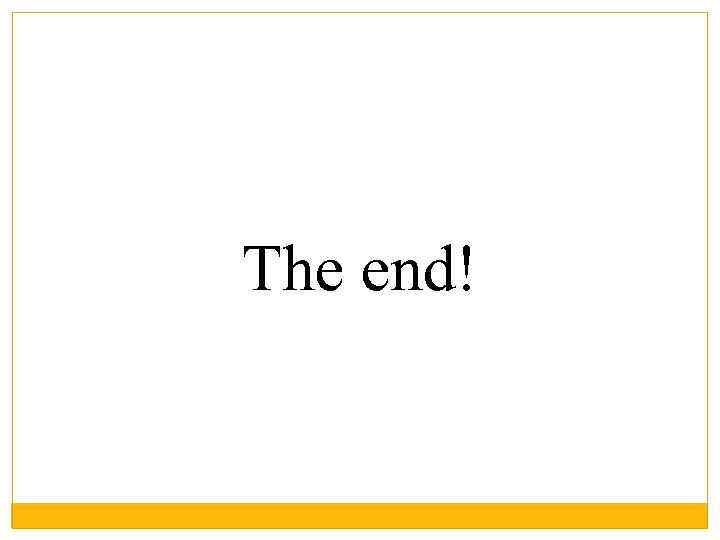
The end!
киплинг.pptx